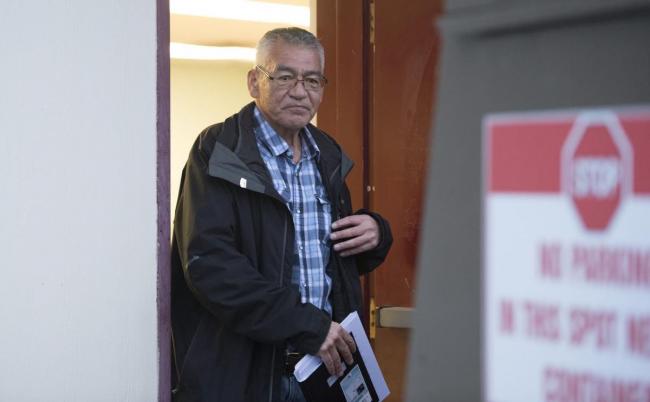Articles Menu

May 4, 2020
OTTAWA—The federal government’s export credit agency will lend up to $500 million to build the Coastal GasLink, a natural gas pipeline that sparked a national protest movement and reckoning over the Liberal administration’s commitment to Indigenous reconciliation.
Export Development Canada (EDC) says it will lend between $250 million and $500 million to the company building the project, based on an agreement signed April 28. The company building the 670-km pipeline, Calgary-based TC Energy, said in a statement to the Star that the deal includes a “syndicate of banks” that will fund the majority of the $6.6-billion project’s construction cost.
The deal is entirely unwelcome to Na’Moks, a hereditary chief of the Wet’suwet’en nation in northern British Columbia.
Noting how EDC is described by Ottawa as an “arm’s length” Crown corporation, Na’Moks said he sees the new loan as public financing for a project without support from the Wet’suwet’en traditional leadership.
“This is the government that is lending them the money. That’s the bottom line,” he said.
“It doesn’t make sense to me to put money into something that is bound to fail because the opposition to this is so high.”
While elected band councils signed agreements to support the project, the Wet’suwe’ten traditional leadership has spearheaded opposition to the pipeline for years. The project is already approved and under construction, and will deliver liquified natural gas to an export terminal in Kitimat, B.C.
But the Wet’suwe’ten opposition gained national prominence after RCMP arrests this winter triggered a huge solidarity movement that saw Mohawk demonstrators block rail lines in Ontario and Quebec and supporters stage rallies in cities across the country.
EDC spokesperson Jessica Draker said by email that the loan was approved after a “rigorous due diligence review.” The review included an assessment of the project’s impact on “First Nation relations” and environmental factors like its effects on wildlife and construction-related greenhouse gas (GHG) emissions, according to a synopsis EDC posted online.
Draker said the company also completed an analysis to find ways to reduce emissions from the project and will report annually on emissions once the pipeline is operational, according to EDC requirements.
Environmental advocates argue the EDC loan to the pipeline project is yet another example of the agency’s multibillion support for the fossil fuel industry responsible for a huge portion of Canada’s annual greenhouse gas emissions. EDC provided almost $10.6 billion to oil and gas companies in 2019, according to figures on the agency’s website.
“At a time when we should be really thinking through how we move EDC’s financing away from fossil fuels, they’re doubling down,” said Julia Levin, climate and energy program manager with Environmental Defence.
The Liberal government has vowed to eliminate all “inefficient” fossil fuel subsidies by 2025. It has also promised to exceed its emissions targets for 2030 and hit “net zero” emissions by 2050.